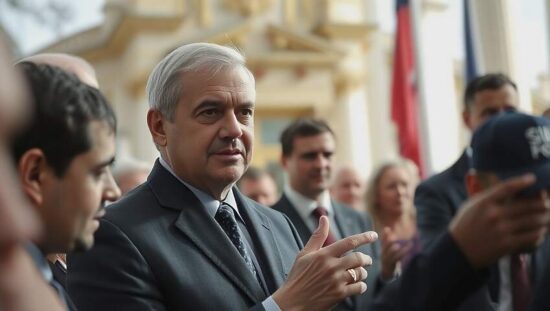The burgeoning political force, Bündnis Sahra Wagenknecht (BSW), is poised for a significant shift in leadership structure with the proposed appointment of publicist Michael Lüders as deputy chairman. According to reports from “Welt” citing sources within the BSW federal executive, the party’s leadership, spearheaded by Sahra Wagenknecht, intends to formally nominate Lüders at the upcoming federal party conference in December.
The decision, slated to be finalized at a closed-door executive meeting in Berlin on November 1st and 2nd, signals a deliberate strategy to bolster the BSW’s expertise, particularly in the realm of foreign policy. Wagenknecht herself has expressed enthusiasm for Lüders’ candidacy, emphasizing the “pressing need” for his expertise amidst escalating geopolitical tensions and a surge in military spending.
Lüders, currently a member of the extended federal executive, brings a considerable background in political consultancy, academia and journalism, including previous writing for “Die Zeit” and a past tenure as president of the German-Arab Society. He is also the author of several books focusing on the Middle East, where he has consistently advocated for a reassessment of Germany’s existing relationship with Israel – a viewpoint that is likely to further solidify the BSW’s increasingly critical stance on Western foreign policy.
The proposed leadership restructure occurs amidst ongoing speculation surrounding Wagenknecht’s future role within the party. While she remains the figurehead and driving force, her precise position within the emerging leadership team remains unclear and is reportedly subject to discussion during the executive meeting. This ambiguity reflects a broader questioning of how the party’s founding principles and namesake can be effectively integrated into a more formal and established political structure.
Lüders’ elevation, coupled with the uncertainties surrounding Wagenknecht’s role, raises questions about the direction BSW intends to take. His outspoken views on the Middle East and his invocation of Karl Marx’s philosophy of transformative action rather than mere interpretation, suggest a deepening commitment to a radical departure from mainstream German politics. The appointment could further alienate centrist and moderate voices, but simultaneously aims to consolidate the support of those disillusioned with increasingly militarized and, in their view, misguided foreign policy. The December party conference, therefore, represents a pivotal moment for BSW, potentially solidifying its position as a disruptive force within the German political landscape and redefining the scope of legitimate political discourse.





